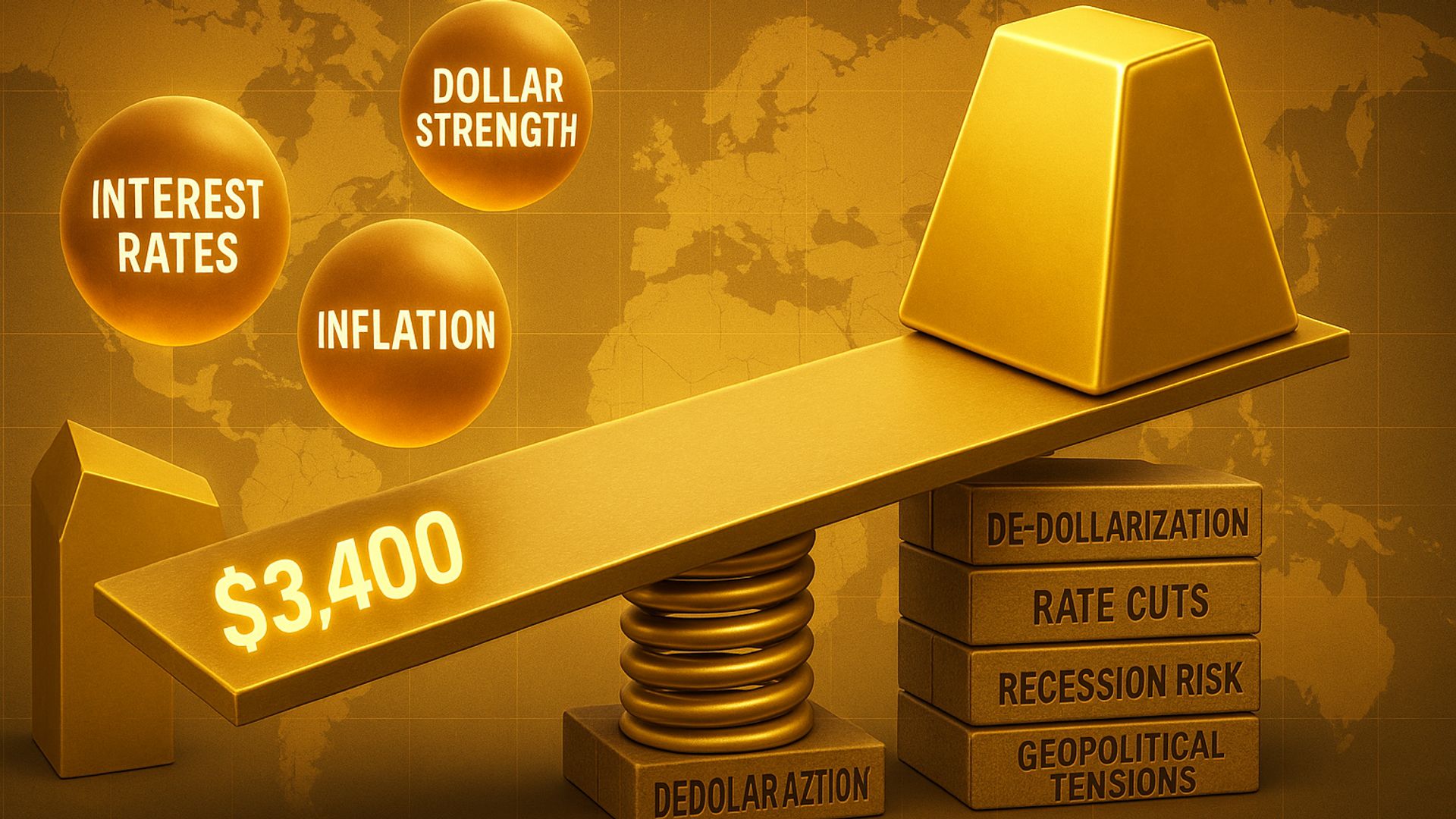
What Happens to Gold During a Recession or Inflation?
Gold has always been seen as a safe-haven asset, a timeless store of value that investors turn to when uncertainty strikes. Whether it’s a looming recession or rising inflation, gold tends to play a central role in how people protect their wealth. But how exactly does gold behave in these two very different economic situations? Let’s explore what typically happens to gold prices when economies slow down or when the cost of living surges.
Gold During a Recession: The Safe Haven Effect
When economies enter a recession, growth slows, unemployment rises, and consumer spending falls. Stock markets often tumble as corporate profits shrink. In such times, investors seek assets that can preserve value when others lose it, and that’s where gold shines.
Historically, gold prices tend to rise during recessions because:
-
Investor Fear Drives Demand:
When markets are volatile, investors shift money from riskier assets like stocks to safer ones like gold. -
Falling Interest Rates Boost Gold’s Appeal:
Central banks usually cut interest rates to stimulate the economy during a recession. Lower interest rates reduce the opportunity cost of holding gold (since it doesn’t pay interest or dividends), making it more attractive. -
Currency Weakness Can Lift Gold:
Recessions often weaken national currencies, especially when governments print more money to stimulate growth. A weaker currency typically pushes gold prices higher since gold is priced in U.S. dollars.
However, it’s worth noting that gold’s performance can vary depending on the severity of the recession and the speed of recovery. In short recessions, gold may spike temporarily; in prolonged downturns, it can sustain higher prices for years.
Gold During Inflation: A Hedge Against Rising Prices
Inflation occurs when the cost of goods and services rises over time, eroding purchasing power. When this happens, paper currencies lose value—and investors look for assets that can hold or increase their worth. Gold is often the go-to choice.
Here’s why gold tends to perform well in inflationary periods:
-
It Preserves Real Value:
As prices rise and currencies weaken, gold’s intrinsic value remains stable, making it an effective hedge against inflation. -
Investors Seek Stability:
When inflation surges, traditional savings and bonds lose real value, prompting investors to turn to tangible assets like gold. -
Supply Constraints Add to Price Pressure:
Gold supply is limited, and mining output doesn’t increase quickly. As more people buy gold during inflation, prices can rise further.
That said, gold doesn’t always respond instantly to inflation. Sometimes, expectations of higher interest rates—used by central banks to fight inflation—can temporarily weigh on gold prices. But over the long term, gold has proven to retain value far better than fiat currencies during inflationary cycles.
Recession vs. Inflation: Two Scenarios, One Common Winner
While recessions and inflation represent opposite sides of the economic spectrum, one defined by slow growth, the other by rising prices—both tend to benefit gold for the same fundamental reason: trust.
When people lose confidence in financial systems, currencies, or governments’ ability to manage the economy, they turn to gold. It’s not just an investment—it’s a form of insurance.
-
In a recession, gold offers protection against falling asset prices and weakening currencies.
-
In inflation, it protects against eroding purchasing power and declining real returns.
Gold = Winner
Whether the world heads toward a recession or inflation, gold often emerges as a winner. While no asset is completely risk-free, gold has a centuries-long history of preserving wealth during uncertain times.
For investors and jewelry lovers alike, owning gold isn’t just about beauty or luxury, it’s about stability. In an unpredictable global economy, gold remains a timeless shield against both the chill of recession and the heat of inflation.
View Abdullah Sakkijha Jewelry’s latest collections and pieces: https://abdullahsakkijha.com/
Visit us: Swefieh, Al-Hamra Street – Amman, Jordan
Follow us on our socials:
Instagram | Facebook |Snapchat | TikTok | YouTube







Add comment